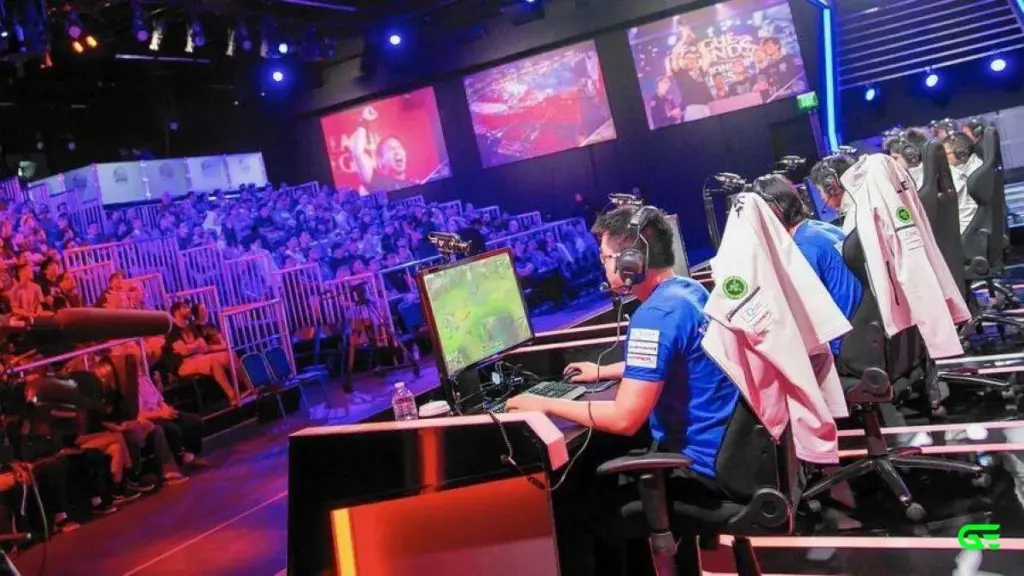An increasing number of clients are presenting with esports betting problems. Clinicians and other helping professionals need to be equipped to understand this booming industry and the potential risks involved, especially those associated with match fixing and social influences.
This blog will outline the latest insights and information about esports betting, including how it works and the risks involved.

Esports explained
Esports is competitive online video gaming. In many ways it’s the same as traditional sports with fans following teams, watching matches and placing bets.
There are two main types of esports: the simulation of real-life sports (for example FIFA, NBA and MLS have their own esports teams) and classic esports games like League of Legends, DOTA 2 and CS:GO.
Esports has become a billion-dollar industry, with streaming platforms like YouTube and Twitch making it accessible to a worldwide audience. Some of the biggest contests involve teams and players competing for millions of dollars in prize money.
The Covid-19 pandemic has fueled a huge interest in esports and esports betting. In early 2020, virtually all real-life sports events were cancelled. In order to overcome the impact of the coronavirus crisis, the sports betting industry immediately turned to esports. And many people who had previously bet on traditional sports switched to esports too.
How does esports betting work?
Although people can gamble before an esports event, live betting during the match has become hugely popular. The most common types of esports betting are:
- Real-money, fixed-odds betting through an online betting site
- Social betting between individuals arranged privately
- Skin gambling and loot boxes which often take place in-game.
Some esports bets are specific to games like CS:GO, League of Legends and DOTA 2 – such as first map, first kill and first blood. Others are more generally available. These include:
- Match winner
- Tournament winner
- Correct scores
- Odd/evens bets – this is where you guess whether there will be an odd or even number of games won, players killed or rounds played
- Over/under bets – you bet on whether an esports team will score more or less than an amount set by the online betting site.
Potential risks of esports betting
As esports has become increasingly mainstream and esports betting is widely accessible, it is important to understand the potential risks.
Social influences can entice young esports players into gambling. Advertising techniques used by gambling operators are different to those used for traditional sports which have older audiences. Rather than getting people to sign up by offering free bets, esports betting sites use social media posts featuring gifs and memes that are funny and shareable. They don’t look like commercial content and young people – who may have had no previous interest in gambling – can be unwittingly drawn into esports betting.
Another risk is a lack of esports knowledge when betting. Most esports games, like DOTA 2 or League of Legends, are quite complex and can be hard to understand without an in-depth knowledge of the games.
A further concern with esports betting is match fixing, and the lack of proper anti-fraud and cheating mechanisms in place. Unethical practices seen in the industry include slowing opponents down using technology to interrupt their internet connection, taking drugs to speed up play or players choosing to lose.
Finally, there is a risk of gambling addiction among people who play video games. One of the main drivers of this is loot boxes which can be earned during the game or bought with real money. The contents are hidden until after purchase with a small chance at obtaining rare items, similar to hitting a jackpot in gambling. Players are encouraged to purchase as many of these as possible, and the amount of money spent can spiral out of control.
How to help your clients
With the growth in esports and esports betting, helping professionals need to understand this booming industry and have specialist tools to work with esports gamers and their families who may be struggling with gaming disorder.
INTENTA has two specialist training courses for clinicians and mental health practitioners:
INTENTA Esports Mental Wellness Training
Register your interest for our upcoming Esports Mental Wellness Training which is launching this summer. This training will enable helping professionals to:
- Better understand esports
- Identify the common pitfalls experienced by families
- Provide parents with the resources to increase well-being as a family
- Implement strategies to help players achieve emotional balance at school and home
- Be a valuable source of knowledge for colleagues on a generation-defining issue.
INTENTA Gaming Disorder Clinical Training
Our Gaming Disorder Clinical Training provides helping professionals with knowledge about the prevalence of problem gaming and its associated consequences, along with clinical examples. After completing the training, clinicians will be equipped with effective tools and skills, and know how to help someone with video game addiction.
Other article:
From casual gaming to making millions: Inside the fast-growing esports industry
